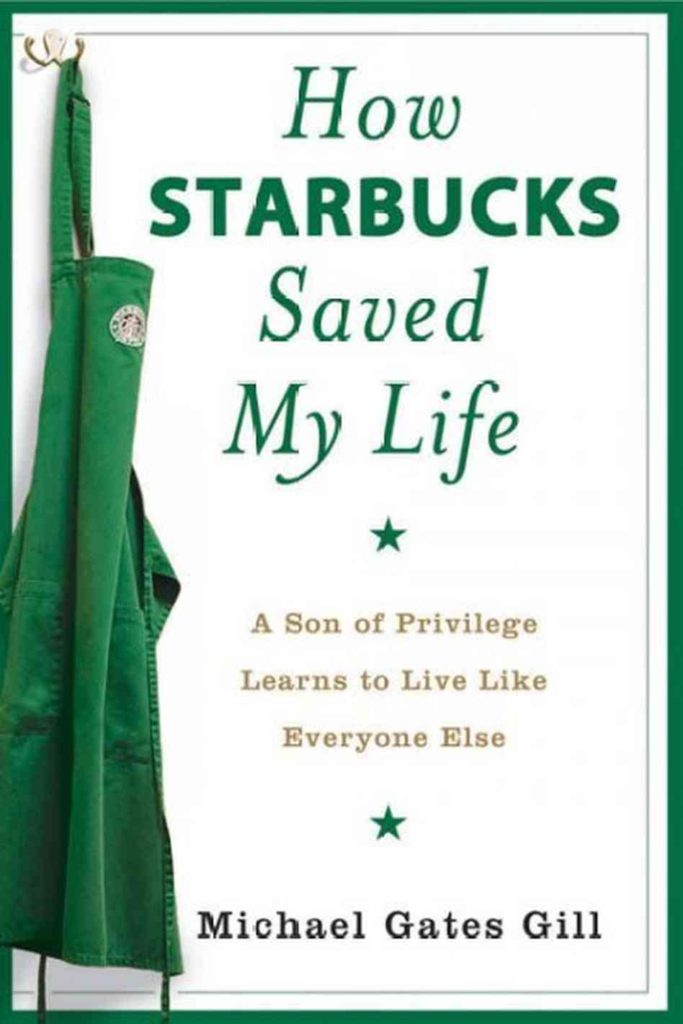How Starbucks Saved My Life, by Michael Gates Gill
Reviewed by Michael Attard
I came across this book while browsing. Seeing “Starbucks” in the title immediately caught my attention, and since I like Starbucks, I pulled the book from the shelf. What really piqued my interest was the incongruity of the name of a corporate brand associated with “the saving of life.” “How Multinational Giant Wipes Out Town” would have been a more believable title. I flipped the book over and read the back cover. Actually, the man in the story, including his name, sounded a lot like me, so I bought the book.
To be clear, the book is a nonfiction memoir. Yet the story of his troubles touches all the bases for writing an interesting novel. There is career and financial success. As a protagonist, Michael suffers from the fault of arrogance, and this leads him to succumb to scandal, destroy his marriage, and ruin the already precarious relationships he had with his children. His job, which he assumed was on a solid footing, is yanked like a carpet out from under him. Add a serious medical issue and Michael is forced to contemplate whether his sudden trials are not perhaps his comeuppance.

The story begins with Michael already in a downward spiral. In an attempt to get a grip on his life, or a sense of his place in the universe, he retreats to the bygone familiarity and comfort of the past by visiting the neighborhood where he grew up. Standing in front of his old home, he reminisces about the day his father had a Steinway grand piano hoisted by crane into the second floor. Throughout the book, Michael goes back years in time and pulls stories seemingly out of thin air and pops them into the present. At first, I thought that most of these were interesting little titbits from the past that he was using to make his story more interesting or to simply fill the pages. But the more I read, I began to see that as he progressed to a new life, he still needed validation that his old life was not bereft of significance. In this way, I do not think that he is any different from anyone else. And it is these images from the past, now seen in a new light, that help Michael transition to his new self.
By accident, more than by fate, destiny, or out of desperation, he becomes a Starbucks employee. He had worn expensive suits for years, and now he was putting on an apron. His boss, Crystal, is a young black woman. At this point, to Mike, things were backward and difficult. He struggled but then persevered. At times, Mike tells us about the actual job – cleaning, taking out the garbage, his fear of the cash register, and the specifics of either opening or closing the store. These descriptions give the reader an insight into the job, but the story is essentially about what is happening inside Mike’s head.
The change is predominantly brought about through the Starbucks partners, Mike’s fellow workers. Working at 93rd and Broadway, Mike’s white face makes him the minority. To his credit, with an open mind he comes to see how hypocritical he had been as a member of an old boys’ club. He came to like, admire, and respect the young people he was working with. As time passed, he was able to accept the new reality that he was forced to see.

The theme of “respect” is central to the story. Mike learns that through respect for others, one comes to respect oneself and to gain the respect of others. In his former life, he never had to learn this. He had been placed on an upward escalator and then mistakenly interpreted his success as achieved on his own merit.
The story is also about taking risks. I do not mean skydiving or trying to summit Mount Everest. Rather, Mike comes to understand that his boss, Crystal, has taken a risk by hiring him. He thought he understood risk because he had gone out on a limb in many of his corporate presentations during his past life. But he had never taken a risk on people, especially if they were not like him, meaning white and male.
Sceptics and critics might argue that this is merely the rationalization of a guy who did not make it, but I do not think so. His story is too honest. A mere rationalization would ignore or discount his past failures. But he lays it all bare, even admitting that the woman he had an affair with dumped him because she found him to be boring. Dishonest people do not talk about such things.
By the end, Mike had also learned gratitude and how to listen to his heart. He saw that the people around him were a sea of positive energy. That is a message he wants to share. Mike did not find religion. He found happiness in himself through others. He had become newly validated.
The Reviewer
Michael Attard is a Canadian who has lived in Gwangju since 2004. Though officially retired, he still teaches a few private English classes. He enjoys reading all kinds of books and writes for fun. When the weather is nice, you may find him on a hiking trail.







